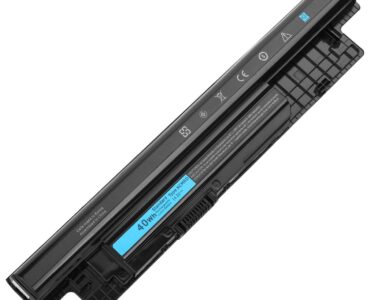In the world of global trade, securing a foothold in international markets requires adherence to various regulatory requirements. For businesses in India, one of the most critical steps in the export process is obtaining an Importer Exporter Code (IEC) from the Directorate General of Foreign Trade (DGFT). This article provides an in-depth look at IEC registration, its importance, and the comprehensive steps involved in obtaining it.
What is IEC Registration?
The Importer Exporter Code (IEC) is a unique 10-digit code issued by the DGFT, which is a part of India’s Ministry of Commerce and Industry. This code is mandatory for businesses and individuals who wish to engage in import or export activities. It acts as a regulatory measure to monitor and facilitate international trade transactions, ensuring compliance with the country’s trade policies.
IEC registration is essential for conducting financial transactions related to imports and exports. Banks require the IEC code when processing international transactions, including payments for goods and services. Without this registration, businesses may face challenges in receiving payments from foreign buyers or making payments to overseas suppliers. The code ensures the legitimacy of financial dealings, providing a seamless and secure method for transferring funds across borders.
Importance of IEC Registration
Legal Requirement for Export Activities
One of the primary reasons for obtaining an IEC is that it is a legal prerequisite for conducting international trade. Without this code, a business cannot legally import or export goods or services. It ensures that trade activities are tracked and regulated, thereby preventing illegal trade practices and facilitating proper documentation.
Access to Global Markets
The IEC opens doors to international markets, allowing businesses to engage with foreign buyers and sellers. This registration is crucial for expanding your market reach beyond domestic borders. It helps businesses establish themselves in new markets, build international relationships, and explore new opportunities.
Simplified Trade Processes
Having an IEC simplifies many aspects of the import and export process. It facilitates smoother interactions with customs authorities, shipping companies, and other regulatory bodies. The IEC is necessary for processing export-import documentation, including shipping bills, bills of lading, and customs declarations, making the trade process more efficient.
Eligibility for Export Benefits
Registered exporters with an IEC can benefit from various government schemes and incentives designed to promote exports. These may include duty drawbacks, export subsidies, and other financial aids aimed at enhancing the competitiveness of Indian exports in the global market.
In the age of e-commerce, businesses are increasingly engaging in cross-border transactions. IEC registration is vital for e-commerce businesses that sell products globally. Whether through an independent website or international online marketplaces, having an IEC code allows these businesses to process international orders, ship products, and manage international payment gateways. This registration is particularly important for startups and small businesses looking to scale their operations globally.
Regulatory Compliance
IEC registration ensures compliance with India’s foreign trade policies. It helps businesses adhere to regulations related to tariffs, trade agreements, and export controls. Proper registration helps avoid legal issues and penalties associated with non-compliance, ensuring that your business operates within the legal framework.
Step-by-Step Guide to Obtaining IEC Registration
1. Visit the Official Website
Start by navigating to the official IEC registration website. This platform is where you’ll initiate your application for the Importer Exporter Code.
2. Complete the Application Form
Fill out the online registration form with precise details about your business. This includes providing the business name, type of business entity, PAN number, and other relevant information. Ensure that all entries are accurate to avoid any issues during processing.
3. Submit the Application
After completing the form, review all the information to ensure correctness. Once confirmed, submit the application through the website. Double-checking all fields before submission helps prevent errors and delays.
4. Pay the Application Fee
Once the form is submitted, proceed to pay the required registration fee. This can be done online using various payment methods, such as net banking, credit/debit cards, or other available options.
5. Verification Process
After your payment is processed, an executive will contact you to verify the OTP sent to your registered mobile number or email address. This verification is necessary for completing the IEC registration.
6. Receive Your IEC Code
Upon successful verification and processing of your application, you will receive your IEC code via email. The entire process usually takes 1 to 2 working days, providing you with the necessary code to engage in international trade.
Benefits Beyond Compliance
Boosting Business Credibility
An IEC registration enhances your business’s credibility in the international market. It signals to potential foreign partners and customers that your business complies with regulatory standards and is serious about international trade. This credibility can lead to stronger business relationships and increased trust from international clients.
Streamlined Operations
Having an IEC simplifies many operational aspects of international trade. It reduces bureaucratic hurdles and ensures that your business complies with all necessary regulations, making trade operations smoother and more efficient.
Access to Trade Data and Insights
With IEC registration, businesses can access various trade-related data and insights provided by the DGFT. This information can be valuable for making informed decisions, understanding market trends, and strategizing for international expansion.
Facilitation of Trade Agreements
For businesses involved in complex international trade agreements, having an IEC simplifies the process of negotiating and executing contracts. It provides a formal and recognized identification for your business, facilitating smoother contract discussions and negotiations.
Recognition and Credibility
Having an IEC code enhances a business’s credibility, both domestically and internationally. When dealing with foreign clients or suppliers, IEC registration acts as proof of legitimacy and compliance with Indian trade laws. It builds trust with international partners, as they can verify that the business operates under legal guidelines. Furthermore, international buyers and suppliers are more likely to trade with entities registered and recognized by their government.
Promotes Business Expansion
Global trade opens doors to new revenue streams and markets that are not available domestically. IEC registration allows businesses to explore opportunities in international markets, fostering growth and expansion. Companies can diversify their product offerings, enter new geographical regions, and build a robust global presence. Additionally, being part of global trade networks can lead to new partnerships, joint ventures, and collaborations, further promoting business growth.
Simplified Export-Import Process
With IEC registration, the complexities of international trade are significantly reduced. The code simplifies documentation and procedures involved in importing and exporting goods. As a result, businesses can efficiently manage their supply chain, reduce delays in shipments, and streamline the overall trade process. Moreover, the ease of conducting international transactions enables companies to focus on scaling their operations without worrying about bureaucratic hurdles.
Vital for E-Commerce Businesses
In the age of e-commerce, businesses are increasingly engaging in cross-border transactions. IEC registration is vital for e-commerce businesses that sell products globally. Whether through an independent website or international online marketplaces, having an IEC code allows these businesses to process international orders, ship products, and manage international payment gateways. This registration is particularly important for startups and small businesses looking to scale their operations globally.
Aids in Reducing Tax Liabilities
One of the key advantages of IEC registration is the potential reduction in tax liabilities through various exemptions and concessions available to exporters. By leveraging government incentives, businesses can save on customs duties and taxes, making their products more competitive internationally. Moreover, these benefits can significantly improve a company’s profit margins, especially in highly competitive industries.
Conclusion
IEC registration is a crucial step for any business looking to engage in international trade from India. It not only fulfills a legal requirement but also offers numerous benefits, including access to global markets, eligibility for export incentives, and streamlined trade processes. By following the structured process of obtaining an IEC, businesses can enhance their global presence, ensure regulatory compliance, and capitalize on international trade opportunities. For any business aiming to broaden its horizons and tap into new markets, obtaining an IEC is an essential and strategic move that paves the way for successful international operations.




